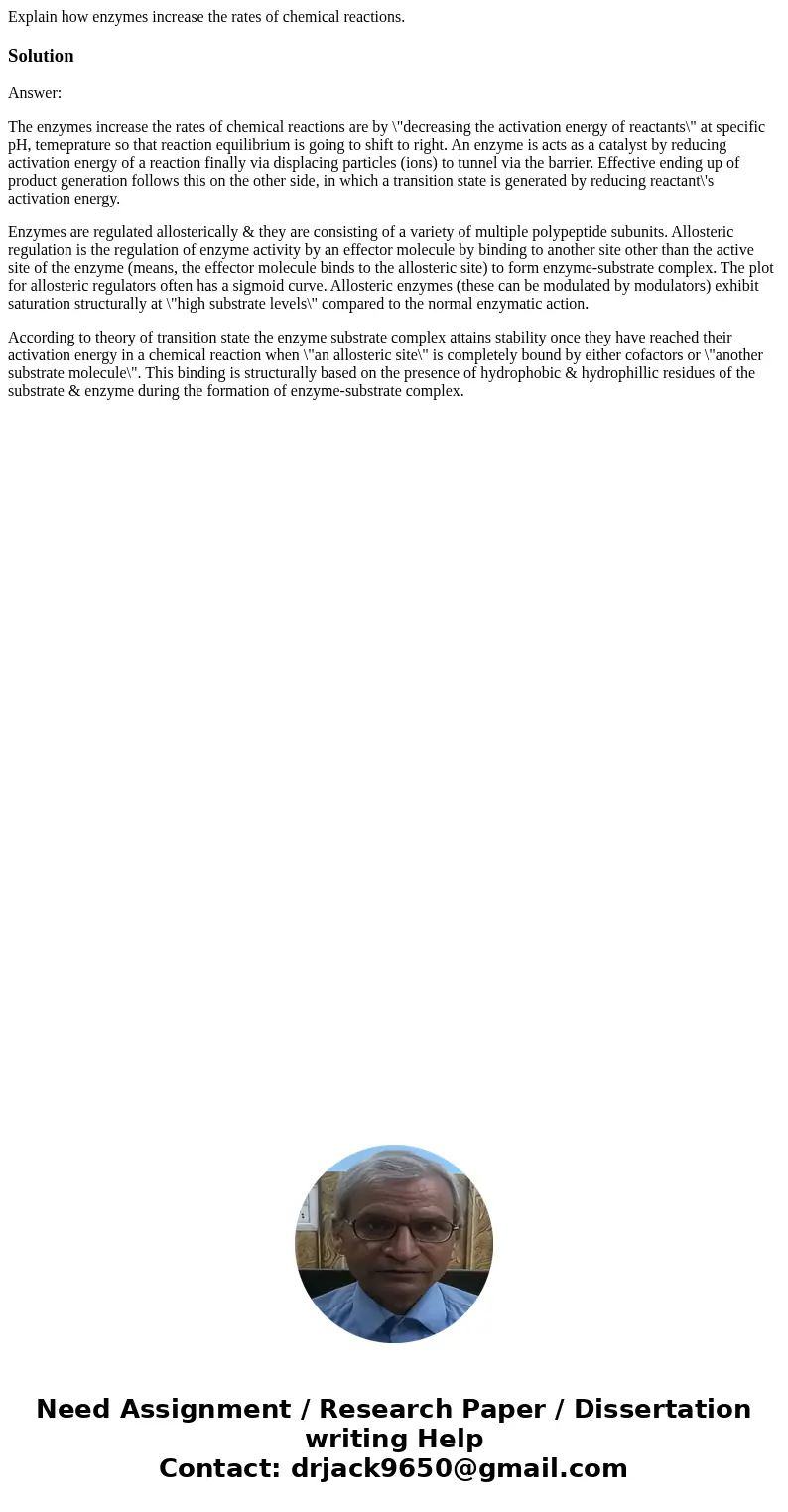Explain how enzymes increase the rates of chemical reactions
Explain how enzymes increase the rates of chemical reactions.
Solution
Answer:
The enzymes increase the rates of chemical reactions are by \"decreasing the activation energy of reactants\" at specific pH, temeprature so that reaction equilibrium is going to shift to right. An enzyme is acts as a catalyst by reducing activation energy of a reaction finally via displacing particles (ions) to tunnel via the barrier. Effective ending up of product generation follows this on the other side, in which a transition state is generated by reducing reactant\'s activation energy.
Enzymes are regulated allosterically & they are consisting of a variety of multiple polypeptide subunits. Allosteric regulation is the regulation of enzyme activity by an effector molecule by binding to another site other than the active site of the enzyme (means, the effector molecule binds to the allosteric site) to form enzyme-substrate complex. The plot for allosteric regulators often has a sigmoid curve. Allosteric enzymes (these can be modulated by modulators) exhibit saturation structurally at \"high substrate levels\" compared to the normal enzymatic action.
According to theory of transition state the enzyme substrate complex attains stability once they have reached their activation energy in a chemical reaction when \"an allosteric site\" is completely bound by either cofactors or \"another substrate molecule\". This binding is structurally based on the presence of hydrophobic & hydrophillic residues of the substrate & enzyme during the formation of enzyme-substrate complex.

 Homework Sourse
Homework Sourse